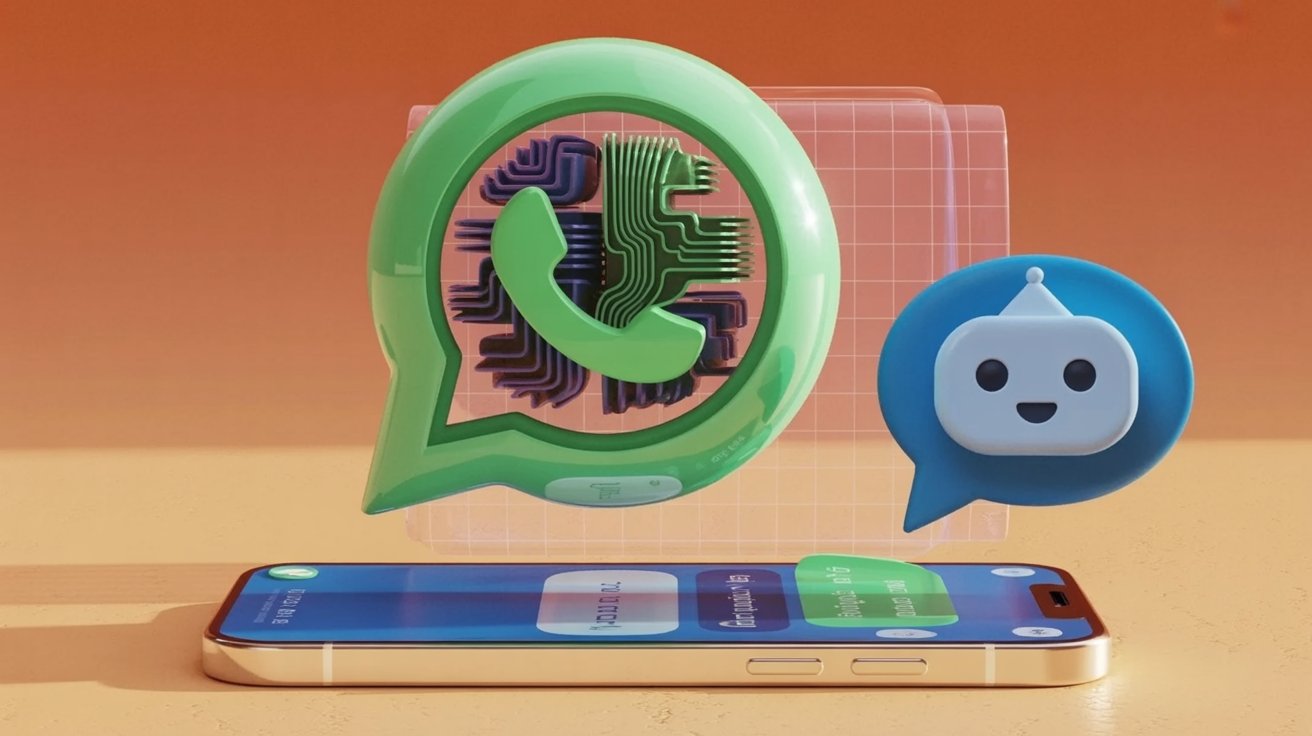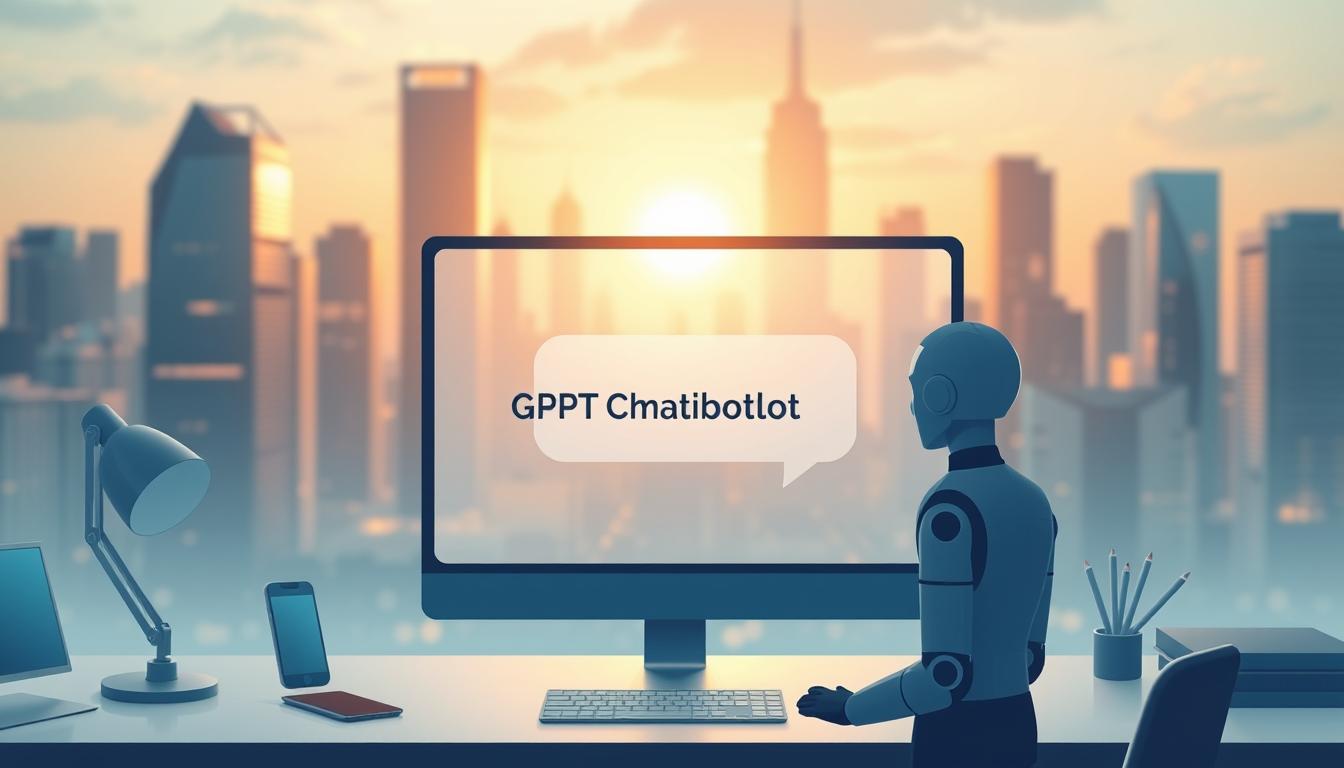A Deep Dive into artificial intelligence taking over jobs
Imagine walking into your workplace tomorrow and seeing a machine do your job faster, cheaper, and better. This is the reality many are facing as artificial intelligence takes over jobs. I’ve seen tech change industries and felt the fear: Could my role vanish too?
The truth is, artificial intelligence taking over jobs isn’t just a sci-fi plot—it’s happening now. It’s changing healthcare, customer service, and even creative fields.
Think about it: self-checkout kiosks replacing cashiers, algorithms drafting news articles, or robots assembling cars. These aren’t distant futures—they’re here. The question isn’t if artificial intelligence taking over jobs will happen, but how fast. Experts warn that within five years, ai job displacement could redefine careers we once thought secure.
Key Takeaways
- Artificial intelligence taking over jobs could shift 30% of U.S. roles by 2030.
- ai job displacement affects white-collar and blue-collar jobs alike.
- Automation trends prioritize tasks, not just industries, changing how we work.
- Preparing for artificial intelligence taking over jobs means focusing on skills AI can’t copy.
- Understanding ai job displacement helps individuals and companies adapt proactively.
Introduction to the Dawn of AI in the Workforce
Technology keeps getting better, and we’re seeing more jobs taken over by AI. This change is big, making us think differently about work. I’ve seen how factories, offices, and even creative fields are using AI tools.
This isn’t just about machines. It’s about changing how humans work in a world driven by technology.
In places like manufacturing, robots are making cars. In retail, chatbots talk to customers. These changes show AI is not just helping—it’s changing jobs. In healthcare, AI looks at medical scans faster than people.
- Manufacturing: Robots streamline assembly lines.
- Retail: AI chatbots manage customer service inquiries.
- Healthcare: Algorithms aid in diagnosing diseases.
| Industry | AI Adoption Rate (2023) | Potential Job Shifts |
|---|---|---|
| Logistics | 45% | Warehouse roles reduced by 18% |
| Banking | 32% | Data entry positions declining by 22% |
| Content Creation | 15% | Basic reporting tasks automated |
These numbers show AI is taking over jobs now, not just in the future. By understanding these changes, we can get ready for what’s next. The important thing is to keep innovating while also letting humans adapt.
The Impact of Artificial Intelligence Taking Over Jobs: A New Era
Artificial intelligence is changing jobs faster than expected. Let’s look at real examples and trends that are leading this change.
Case Studies on artificial intelligence taking over jobs
| Industry | AI Application | Impact |
|---|---|---|
| Retail | Amazon Go stores | No cashiers; AI scans purchases automatically |
| Healthcare | IBM Watson | Diagnosis accuracy improved by 30% in cancer detection trials |
| Customer Service | Chatbots like Zendesk | 70% of companies report faster response times |
Key Indicators and Market Trends
- McKinsey reports 375 million global job shifts by 2030 due to automation
- Gartner predicts AI will eliminate 1.8M jobs but create 2.3M by 2025
- Workforce automation concerns rise as 65% of U.S. workers worry about AI replacing roles
These trends show the future of work ai as both a chance and a challenge. Companies like Tesla and Google use AI to make things better and faster. But, worries about losing jobs are real, mainly in areas like driving and customer service.
Exploring Job Automation Trends and AI Job Displacement
Job automation trends are on the rise. AI systems are getting smarter, leading industries to use tools that make work easier. Robots take on repetitive tasks in warehouses, and chatbots answer customer questions all day, every day.
These changes are real, backed by data. A 2023 McKinsey report found that 37% of U.S. jobs could be automated. The focus is on job automation trends, which guide how businesses and workers adjust.
- Manufacturing: Assembly lines use robotic arms to cut production costs
- Healthcare: AI analyzes medical scans faster than human radiologists in some cases
- Retail: Self-checkout kiosks reduce the need for cashier roles

Not all jobs disappear with automation. Roles change instead. For example, AI in finance spots fraud, freeing up analysts for big decisions. The job automation trends point to a future where humans and machines work together.
Industries like agriculture use drones for crop monitoring, mixing old and new ways of working. The main point is that companies using these tools become more efficient. But workers need to learn new skills to succeed in this changing world.
Understanding Workforce Automation Concerns in the Age of artificial intelligence taking over jobs
As artificial intelligence takes over jobs, workers around the world are worried about their futures. Experts say technological unemployment could change labor markets. But, solutions are coming to help ease these worries. Let’s see how professionals and policymakers are tackling this change.
Expert Insights on artificial intelligence taking over jobs
Economists like Daron Acemoglu say technological unemployment isn’t a must. A 2023 MIT study shows AI might lead to job loss, but also create new roles in AI maintenance and ethics. Here’s what research reveals:
- Automation could displace 20% of jobs by 2030, but 30% of new roles will need AI skills.
- Jobs in manufacturing and customer service are at risk, but creative and caregiving fields are less affected.
Addressing Workforce Anxiety
Communities are taking action with proactive plans. Governments and companies are investing in retraining programs. Here’s a comparison of past job shifts to today’s challenges:
| Factor | Industrial Revolution | AI Era |
|---|---|---|
| Job Loss Focus | Manual labor | Mid-skill roles |
| Policy Response Time | Decades | Years |
| Key Solution | Factory jobs | Upskilling + universal basic income debates |
My conclusion? While worries about AI taking over jobs are real, working together can turn these challenges into chances. The main thing is to get workers ready for the changing job scene.
The Role of AI in Job Displacement and Technological Unemployment
As ai impact on job market changes, it’s key to understand its role in job changes. My study shows automation is already changing jobs in many industries.
Impact Trends: artificial intelligence taking over jobs
Now, some jobs are at higher risk. For example:
- Manufacturing: Robots do 35% of repetitive tasks (McKinsey, 2023)
- Retail: 15% of customer service jobs are automated by chatbots
- Healthcare: AI helps with diagnoses but cuts routine lab technician jobs by 12%
Predictions for Future Job Markets
By 2030, the World Economic Forum predicts:
| Sector | Jobs at Risk | Emerging Roles |
|---|---|---|
| Transportation | Driver roles | AI ethics specialists |
| Finance | Data entry | Algorithm auditors |
| Education | Administrative tasks | Personalized learning designers |
By 2025, 85 million jobs might disappear, but 97 million new ones could appear (World Economic Forum, 2020). The ai impact on job market will benefit tech, creative, and human-focused fields.
Balancing the Future of Work AI with Evolving Employee Skills
The talk about job displacement by artificial intelligence is getting louder. It’s time to find solutions. Programs for reskilling and ongoing learning can turn problems into chances. Employers and workers need to work together to make sure technology helps, not hinders, human skills.

Here are some important steps to take:
- Reskilling programs focusing on areas like data analysis and AI upkeep
- Working with companies like Coursera or LinkedIn Learning for easy access to training
- Support from the government, like IBM’s P-TECH model, for tech education
| Industry | At-Risk Roles | Training Opportunities |
|---|---|---|
| Manufacturing | Assembly line operators | Robotics and IoT certification courses |
| Healthcare | Clerical staff | Telemedicine and EHR system training |
| Retail | Cashiers | AI-driven inventory management courses |
To tackle job displacement by artificial intelligence, we need to rethink how we build careers. Training in creative problem-solving and ethical AI use can help workers succeed with automation. Programs like Google’s Grow with Google show how this balance can work.
Automation Impact on Employment: What You Need to Know
I’ve seen reports that artificial intelligence taking over jobs changes work every day. In the short term, automation cuts jobs like data entry and manufacturing by up to 30% in some areas. But in the long term, new jobs come up.
- Job Loss vs. Gain: McKinsey says 37% of tasks could be automated by 2030. Yet, 23M new jobs in green tech and AI maintenance might appear (World Economic Forum, 2024).
- Skills Shift: The need for AI literacy and creativity grows. Roles like data analysts and AI ethicists are becoming more popular.
- Economic Shifts: Companies like Amazon and Microsoft already use AI to improve hiring and customer service. This changes how we work.
Businesses and workers need to adapt. Upskilling is not just a choice; it’s a must. Stay updated on artificial intelligence taking over jobs to move forward confidently. The future isn’t just about losing jobs; it’s about finding new ways to contribute.
Technological Shifts: Navigating the AI Job Market
Learning to adapt to artificial intelligence taking over jobs begins with understanding its effects on various sectors. My research indicates that automation will change job roles but also open up new ones. Here’s how to get ready:
Navigating Technological Unemployment
- Focus on skills AI can’t replicate: creativity, emotional intelligence, and strategic thinking
- Prioritize continuous learning platforms like Coursera or Udemy for reskilling
- Engage with companies investing in human-AI collaboration tools
Future Outlook: artificial intelligence taking over jobs
By 2030, my projections suggest:
| Job Category | Risk Level | Replacement Percentage |
|---|---|---|
| Data Entry | High | 85% |
| Healthcare Diagnostics | Moderate | 40% |
| Creative Design | Low | 15% |
To adapt, we must take proactive steps. Industries like renewable energy and AI ethics will grow. Keeping up with artificial intelligence taking over jobs trends helps us stay ahead.
Strategies for Adapting to Artificial Intelligence Taking Over Jobs in a Changing Economy
Adapting to artificial intelligence taking over jobs needs clear steps. Here’s how to stay ahead:

Practical Steps for Adaptation
| Step | Action |
|---|---|
| 1. Upskill | Enroll in AI-focused courses via Coursera or LinkedIn Learning |
| 2. Network | Join industry groups like AI Saturdays or local tech meetups |
| 3. Track trends | Follow reports from McKinsey or World Economic Forum |
Innovative Strategies for Workforce Re-skilling
- Micro-credentials: Platforms like Udacity offer nanodegrees in AI ethics and data analysis
- Corporate partnerships: Companies like IBM provide free AI training for employees
- Policy advocacy: Support government programs like Upskill America’s retraining grants
My experience shows that combining technical training with soft skills like creativity and problem-solving boosts resilience. Stay curious—adaptability is key in this shift.
What jobs are AI taking over?
Many wonder if AI will replace their jobs. Let’s look at the facts and examples.
Will artificial intelligence take over my job?
AI is more about automating tasks, not jobs. Jobs with lots of repetition, like data entry, are at risk. For instance, McKinsey reports that 30% of tasks in 60% of jobs could be automated by 2030. But, jobs that need creativity and human touch are safe from AI.
- High-risk: Manufacturing, customer service, accounting
- Low-risk: Healthcare, education, creative fields
Is artificial intelligence taking over the human workforce?
No, AI is changing jobs, not taking them over. Here’s a look at different industries and their risk levels:
| Job Category | Risk Level | Example |
|---|---|---|
| Customer service | High | Chatbots replacing call centers |
| Healthcare diagnostics | Moderate | AIs assist doctors, don’t replace them |
| Art/creativity | Low | AI tools enhance, but humans create |
AI is about evolution, not elimination. Skills like problem-solving and empathy are hard to code.
What jobs can AI not replace?
As artificial intelligence taking over jobs keeps growing, some jobs are safe. These are roles that need creativity, empathy, or making complex decisions. Let’s look at which fields are secure and which might change.
What jobs will AI replace by 2030?
Automation is focusing on jobs that are repetitive or based on data:
- Data entry clerks (automated software)
- Manufacturing assembly (robotics)
- Basic customer service (chatbots)
| Jobs AI Can’t Replace | Jobs at Risk of Automation |
|---|---|
| Healthcare nurses (emotional care) | Warehouse workers (robot systems) |
| Creative artists (unique ideas) | Bank tellers (AI-driven finance) |
| Teachers (student relationships) | Drivers (self-driving tech) |
Jobs that need a human touch are doing well. AI can’t match creativity or empathy. These are key for careers in healthcare, art, and education.
Conclusion
Artificial intelligence taking over jobs is not just a possibility—it’s happening now. It’s changing many industries. From making things to helping customers, AI is making tasks easier and creating new jobs in data analysis and tech support.
Change is coming, but it’s also a chance. We’ve seen how AI makes things more efficient. But workers in areas like retail or logistics need to adapt.
By learning skills like critical thinking, people can do well in this new world. It’s important to keep up with new tech and learn new things.
Learning platforms like Coursera and LinkedIn Learning have courses on AI and digital tools. They help people get ready for the future. Remember, AI is not a threat. It’s a chance to grow and change.
FAQ
What methods are being used to assess the impact of artificial intelligence taking over jobs?
Researchers are looking at job loss trends and surveys to see how AI affects jobs. They study automation’s impact to predict changes in the job market.
Are there specific industries more vulnerable to artificial intelligence taking over jobs?
Yes, jobs in manufacturing, retail, and transportation are at risk. These jobs can be automated, causing job loss and the need for new skills.
How can workers prepare for the threats of artificial intelligence taking over jobs?
Workers should keep learning new skills. Training in technology and soft skills helps them stay relevant in a changing job market.
What are the long-term predictions for job markets affected by artificial intelligence taking over jobs?
Experts say some jobs will be lost, but new ones will appear in tech fields. Workers will need to adapt to these changes, showing AI won’t eliminate all jobs.
What are some common fears regarding technological unemployment and artificial intelligence taking over jobs?
People worry about job security, income inequality, and the fear of being replaced. They fear AI could lead to job loss and economic problems for those who can’t adapt.
Can artificial intelligence create new jobs as it takes over existing ones?
Yes, AI may lead to job loss in some areas but also creates new tech jobs. This change requires education and skills training to adapt.
How can organizations support employees facing the effects of artificial intelligence taking over jobs?
Companies can offer training and continuous learning. They should help employees move into new roles. This approach helps workers adapt and keeps the workforce strong.
Are there jobs that artificial intelligence cannot replace?
Yes, jobs that need empathy, creativity, and problem-solving are safe from AI. Roles in healthcare, education, and creative fields require a human touch AI can’t provide.





